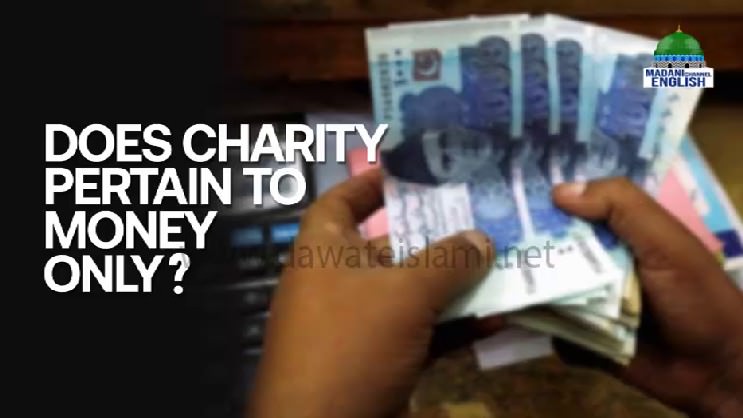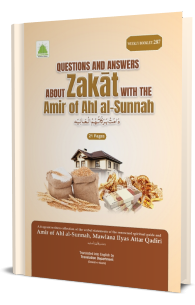
Madani Muzakarah
(1) Difference between matters of fiṭrat and qudrat
Q: Some people say, “This is a matter of fiṭrat” or “This is a matter of qudrat.” What is the difference between these two?
A: They have the same meaning. Fiṭrat is sometimes used to refer to habit or nature, just as it is said, “This is his fiṭrat.”[1]
(2) What is the ruling on offering salah in an open courtyard?
Q: If there is only one room and there is no space to offer salah, can we offer salah outside in an open courtyard?
A: Yes, of course! Whether you have a room or not, you can still offer in an open area. In fact, Eid salah is prayed in open fields in many locations. If Allah Almighty grants us ability, then اِنْ شَــآءَالـلّٰـه we will also offer salah in the plains of Arafat. Tents are set up in Mina, but people still offer congregational salah in the open land.[2]
(3) Does showing children a mirror cause a delay in tooth growth?
Q: I have heard that we should not show children a mirror as this delays the growth of their teeth. Is there any truth to this?
A: This is the first time I am hearing of this. This has no basis. The teeth will grow in accordance with what is in the knowledge of Allah Almighty; a mirror will neither delay nor hasten this.[3]
(4) Taking interest from a bank in to help somebody
Q: Can we take interest from a bank, intending to use this to help somebody?
A: It is haram and a sin to take interest, even if it is to help somebody. Think of it this way; if you try to use one impurity to clean another, it will only increase.[4]
(5) How did you gain Islamic knowledge?
Q: For how long did you seek knowledge from Mufti Waqār al-Dīn رَحْمَةُ الـلّٰـهِ عَـلَيْه?
A: I visited Mufti Waqār al-Dīn رَحْمَةُ الـلّٰـهِ عَـلَيْه over a period of around 22 years. I did not formally study any books with him. Yet اَلْـحَمْـدُ لـِلّٰـه I learned of religious issues a person does not generally gather from reading books.[5]
(6) Visiting the husband’s grave after Ꜥiddah (waiting period)
Q: It is necessary for a woman to visit her husband’s grave after her Ꜥiddah elapses?
A: Whether before the Ꜥiddah or after, women are prohibited from attending graveyards. Apart from the radiant shrine of Allah’s Messenger صَلَّى اللهُ عَلَيْهِ وَاٰلِهٖ وَسَلَّم, women are not permitted to visit any other shrine.[6]
(7) Giving zakat money to the masjid
Q: Can zakat money be given to the masjid?
A: Zakat money cannot be used directly for the masjid. It is only valid to give zakat money to a masjid after acting upon specific the methodology given by Islam. The giver of zakat should grant ownership of that amount to someone who is rightful to zakat, as this is a condition for zakat to be valid. If this person then willingly gives the money towards the construction of a masjid, it would be permissible.[7] By doing this, the zakat will be dispensed. If the zakat amount is given directly to the masjid, this is not permissible, and the zakat will not be dispensed.[8]
(8) Taking a book from the masjid to one’s home
Q: Can we take a book from the masjid to study it at home?
A: If a book has been endowed specifically to the masjid, you cannot take it home. Rather, that book will be benefitted from and studied in the masjid.[9] It is not correct to make marks, fold pages, or write your name on a book that has been given to the masjid. Even if students use the Qurans present in the masjid, they should not be marked to show where their lesson ends.[10]
(9) The meaning of اَفْضَلُ الْبَشَرِ بَعْدَ الْاَنْبِیَاءِ بِالتَّحْقِیْقِ
Q: اَفْضَلُ الْبَشَرِ بَعْدَ الْاَنْبِیَاءِ بِالتَّحْقِیْقِ – What does this mean?
A: It means after the Prophets, the most superior human is Sayyiduna Abū Bakr al-Ṣiddīq رَضِىَ اللّٰهُ عَـنْهُ.[11]
[1] Madani Muzakarah, 7th Rabīʿ al-Awwal, 1445 AH
[2] Madani Muzakarah, 13th Rabīʿ al-Ākhir, 1445 AH
[3] Madani Muzakarah, 20th Rabīʿ al-Ākhir, 1445 AH
[4] Ibid
[5] Waqār al-Fatāwā, vol. 2, p. 202; Madani Muzakarah, 20th Rabīʿ al-Ākhir, 1445 AH
[6] Fatāwā Riḍawiyya, vol. 9, p. 541; Madani Muzakarah, 15th Jumāda al-Ākhira, 1444 AH
[7] Bahār-i-Sharīat, vol. 1, p. 890
[8] Madani Muzakarah, 15th Jumāda al-Ākhira, 1444 AH
[9] Bahār-i-Sharīat, vol. 2, pp. 535-536
[10] Madani Muzakarah, 15th Jumāda al-Ākhira, 1444 AH
[11] Madani Muzakarah, 22nd Jumāda al-Ākhira, 1444 AH


















Comments